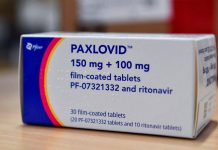The Competition Commission of India (CCI) chairperson Ashok Kumar Gupta has recently said that it is the consumers’ perception that is fueling brand wars, affecting the use of generic drugs in the nation, according to Mint, an India-based news outlet.
He said people’s perception about variation in efficacy is driving a brand war, which is eventually affecting the price effect of generic drugs.
Gupta said Friday at a workshop organized by CCI that generic drugs can play a role in creating the competitive pressures needed for bringing down prescription drug prices and reducing healthcare costs and improving access. However, consumers in India ostensibly pay a premium for brands.
The CCI ensures that the Indian population has access to the broadest range of goods and services at the most competitive prices. Its goal is to create and sustain fair competition in the economy that will provide a ‘level playing field’ to the producers and make the markets work for the welfare of the consumers.
As compared to other market industries, the pharmaceutical market is different because people often do not deviate from the brand-name drug prescribed by their doctor or opt for the same drug sold under generics, distorting competition in the market.
In India, pharma companies usually market their products via doctors rather than directly to consumers.
Generic drugs promoted by companies under their brand names are referred to as “branded generics” and those sold by their chemical names are referred to as “generic generics,” although both categories are off-patent drugs, according to Mint.
Besides the efficacy and quality aspect, Gupta referred to the significant role that emerging private generic drug retail chains, such as Jan Aushadi, can play in increasing availability and improving uptake of generic generics.
Reacting to Gupta’s statement, Dr. Vinod Paul, Member of NITI Aayog, said, “Access to drugs without financial hardship and assurance on quality were key to universal health coverage.”
NITI Aayog is a public policy think tank of the Indian government, aiming to achieve sustainable development goals with cooperative federalism.
He said it is important to improve the affordability of drugs given the fact that spending on drugs accounts for 70% of out-of-pocket expenses on healthcare.
Dr. Paul noted, “Trade margin rationalization of 42 anti-cancer drugs on a pilot basis in 2019 had led to a cost saving of Rs. 984 crores ($133M) for more than 500 brands across 42 formulations.” He further mentioned instances where margin rationalization led to a 90% price reduction in certain drugs, according to Mint.























